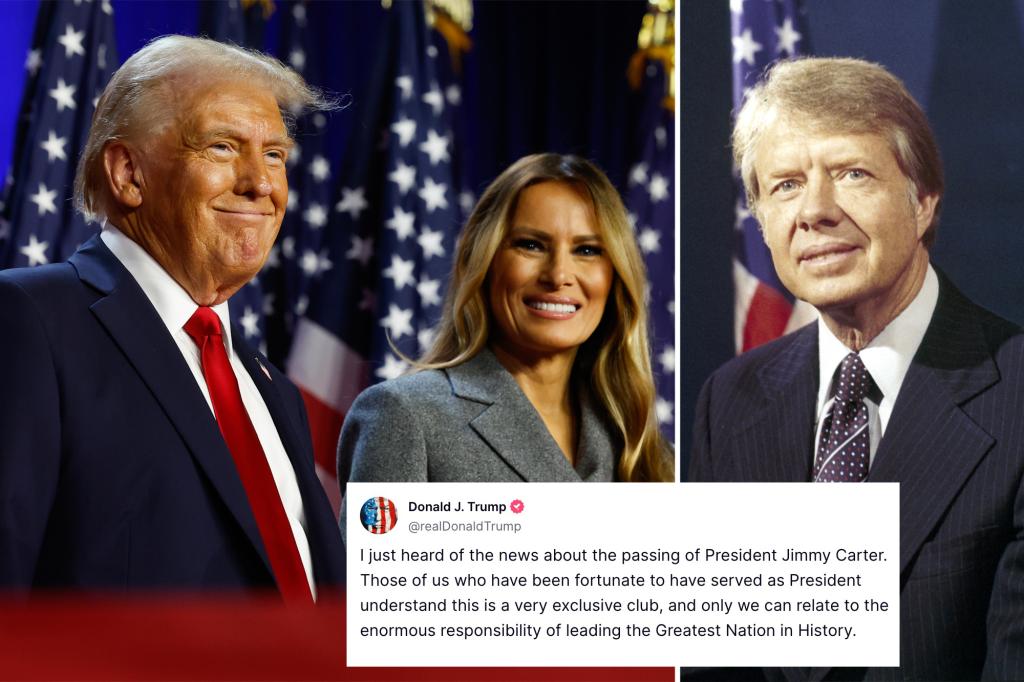Jimmy Carter, the 39th President of the United States, passed away on Sunday at the age of 98, leaving behind a complex legacy shaped by both his time in office and his extensive post-presidency work. While his single term as president was marked by significant economic challenges and foreign policy crises, including the Iran hostage crisis, Carter’s dedication to human rights, peacemaking, and global health earned him international acclaim and cemented his place as a respected elder statesman. His post-presidency endeavors through the Carter Center focused on promoting democracy, mediating conflicts, and combating diseases in developing nations, earning him the Nobel Peace Prize in 2002. His commitment to these causes extended across decades, reflecting a deep-seated belief in the power of diplomacy, advocacy, and service to humanity.
Carter’s presidency, though brief, unfolded during a period of considerable domestic and international turmoil. The nation grappled with high inflation, energy shortages, and a sense of malaise that permeated the national mood. The Iran hostage crisis, where 52 American diplomats were held captive for 444 days, further complicated his administration’s efforts to address these challenges. Despite these difficulties, Carter achieved notable successes, including the Camp David Accords, a historic peace agreement between Israel and Egypt, and the establishment of diplomatic relations with China. He also championed environmental protection and human rights, laying the groundwork for future advancements in these areas.
Beyond the political arena, Carter’s personal qualities resonated with many Americans. His humble beginnings as a peanut farmer from Plains, Georgia, contributed to his image as a man of the people, someone who understood the struggles of ordinary citizens. His deep religious faith informed his values and actions, both in and out of office. His commitment to honesty and integrity, even in the face of political adversity, earned him respect across the political spectrum. These characteristics, combined with his unwavering dedication to humanitarian causes, shaped his public image and solidified his enduring legacy.
Reactions to Carter’s passing poured in from across the globe, reflecting the widespread admiration for his lifelong commitment to peace and human rights. Political leaders, former colleagues, and international organizations praised his unwavering dedication to service, emphasizing his contributions to conflict resolution, election monitoring, and disease eradication. Many highlighted his work with Habitat for Humanity, where he personally helped build homes for low-income families, demonstrating his commitment to practical, hands-on engagement with the issues he championed. His efforts to promote democracy and human rights in countries around the world were recognized as crucial contributions to global progress.
While Carter’s presidency may be remembered for the challenges it faced, his post-presidency work redefined his legacy and established him as a global humanitarian icon. His unwavering commitment to peace, human rights, and global health, coupled with his personal humility and integrity, inspired countless individuals and organizations to work towards a more just and equitable world. The Carter Center, founded in 1982, continues to carry on his work, promoting democracy, mediating conflicts, and combating diseases in developing nations. His dedication to these causes stands as a testament to his enduring belief in the power of diplomacy, advocacy, and service to humanity.
The outpouring of grief and tributes following Carter’s death underscore the profound impact he had on the world. His life and work serve as a powerful reminder of the importance of principled leadership, unwavering commitment to human rights, and the enduring power of service to others. Jimmy Carter’s legacy transcends his single term as president; it is the legacy of a man who dedicated his life to making the world a better place, a legacy that will continue to inspire generations to come. His story is one of resilience, perseverance, and a steadfast belief in the potential for positive change, even in the face of seemingly insurmountable challenges. His life serves as an example of how one individual can make a profound difference in the world through dedication, service, and a commitment to humanitarian principles.


